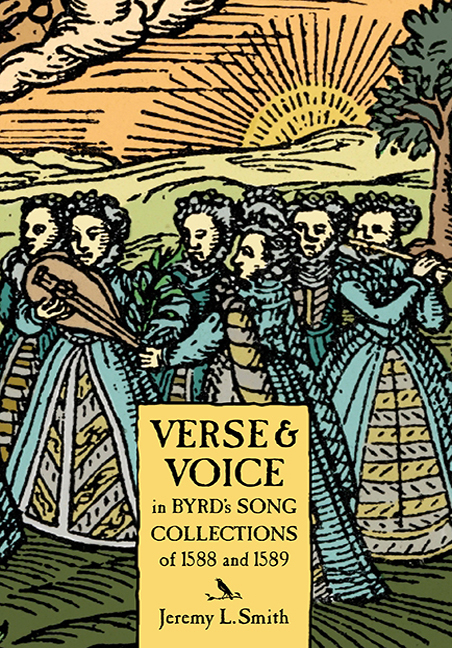Book contents
- Frontmatter
- Contents
- List of Figures
- List of Music Examples
- Preface and Acknowledgements
- Editorial Conventions
- Introduction
- CHAPTER 1 Psalmes
- CHAPTER 2 Sonets & Pastoralls, I
- CHAPTER 3 Sonets & Pastoralls, II
- CHAPTER 4 Sonets & Pastoralls, III
- CHAPTER 5 Songs of sadnes and pietie
- CHAPTER 6 Songs of Three Parts
- CHAPTER 7 Songs of Four Parts
- CHAPTER 8 Songs of Five Parts
- CHAPTER 9 Songs of Six Parts
- Conclusion
- Select Bibliography
- Index
- Studies in Medieval and Renaissance Music
CHAPTER 9 - Songs of Six Parts
Published online by Cambridge University Press: 05 July 2016
- Frontmatter
- Contents
- List of Figures
- List of Music Examples
- Preface and Acknowledgements
- Editorial Conventions
- Introduction
- CHAPTER 1 Psalmes
- CHAPTER 2 Sonets & Pastoralls, I
- CHAPTER 3 Sonets & Pastoralls, II
- CHAPTER 4 Sonets & Pastoralls, III
- CHAPTER 5 Songs of sadnes and pietie
- CHAPTER 6 Songs of Three Parts
- CHAPTER 7 Songs of Four Parts
- CHAPTER 8 Songs of Five Parts
- CHAPTER 9 Songs of Six Parts
- Conclusion
- Select Bibliography
- Index
- Studies in Medieval and Renaissance Music
Summary
AS we move into the final section of Byrd's Songs of sundrie natures it is worth stepping back from the topical stories discussed thus far, involving Mary Queen of Scots and Sir Philip Sidney, to note that this is a collection that begins with biblical material in the songs in three parts and ends with a six-voiced depiction of the Resurrection, in “Christ rising again” | “Christ is risen again” (BE 13: 46–47). It is, in many ways, a satisfying way to draw things to a close, the gradual shift from few to many voices representing a long but grand crescendo that finds its natural climax in the most sublime and hope-inspiring moment of Christ's story. Just as impressively, by the end, through tried and true methods of royal panegyric – moving from royal flattery to royal instruction – Byrd, as we shall see, also takes a position on national policy that is as effectively composed and persuasively presented as any other at the time. With such seemingly disparate material as holy oils, jester-like figures, homilies, purification rites for women after childbirth, and Christ's activities in the afterlife prior to his resurrection, Byrd draws together a strong theologically and socially grounded defense of the Old Ways.
Musicians who stood in or near the political spotlight knew from experience that they must choose their texts carefully. The addition of music to a text nearly automatically enhanced its rhetorical effect. But Byrd did more than simply amplify the communicative impact of well chosen words with melodies, rhythms, and harmonies. Indeed, in this six-voiced section he demonstrated in ways that were more pronounced than elsewhere how effectively he could use musical means to push an argument toward one lexical detail or away from another, to develop an oppositional force against the tide of the text, or even to change its meaning altogether. Most impressively, Byrd brought to completion certain musical ideas and themes that he had slowly unfolded across this entire set of songs, from the first threevoiced works to the very last “Amen” of his final verse anthem.
- Type
- Chapter
- Information
- Verse and Voice in Byrd's Song Collections of 1588 and 1589 , pp. 234 - 282Publisher: Boydell & BrewerPrint publication year: 2016



